HTA-Professorships
As part of the High-Tech Agenda of the Free State of Bavaria, the University of Passau has established and filled the following professorships:
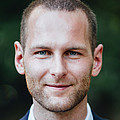
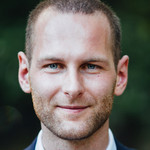
Professor Stefan Glock
Discrete structures have gained enormously in importance over the last century with the development of modern computers and have become an integral part of today's networked and digitalised world. Discrete mathematics conceptualises and investigates the fundamental properties of such discrete structures, such as graphs, which serve as an abstract model for a wide variety of real networks. Professor Stefan Glock's research focuses in particular on the asymptotic properties of very large structures, often incorporating randomness into the models.
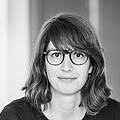
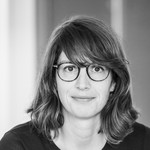
Professor Annette Hautli-Janisz
Professor Annette Hautli-Janisz is Junior Professor of Computational Rhetoric and Natural Language Processing at the University of Passau. Her group develops computational linguistic models for the analysis of discourse, rhetorical strategies, and argumentation in naturally spoken language. She recently got interested in testing the capabilities of Large Language Models - the work on which has hit the headlines in major international and national newspapers.
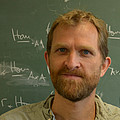
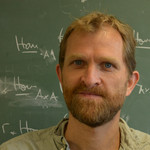
Professor Tobias Harks
Professor Tobias Harks holds the Chair of Mathematical Optimisation and works on the development of algorithms for discrete and continuous optimisation problems as well as on questions of algorithmic game theory and artificial intelligence.
In particular, he conducts research into modelling, algorithms and theory development for distributed dynamic network flows, which form the basis for traffic and transport networks.
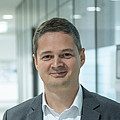
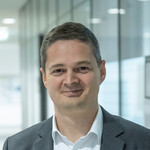
Professor Christoph Heinzl
Professor Christoph Heinzl has been Professor of Cognitive Sensor Systems at the University of Passau since September 2022. As such, he also heads the research group Knowledge-based Image Processing and Visualization at the Fraunhofer Development Center for X-ray Technology (EZRT). Christoph Heinzl earned his PhD degree from the Faculty of Informatics at TU Wien, where he also completed his habilitation in summer 2022. His research interests are found in the fields of scientific visualization, visual analytics, immersive analytics, virtual and augmented reality in visualization, machine learning, as well as non-destructive testing based on X-ray computed tomography. Currently, his main focus of research includes visual analysis of complex volumetric and abstract data, especially primary and derived secondary computed tomography data.
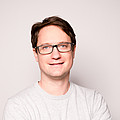
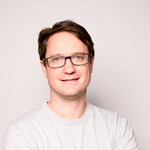
Professor Steffen Herbold
Professor Steffen Herbold's research is at the intersection of artificial intelligence and software engineering. His research aims to develop a valid understanding of the possibilities for the practical use of artificial intelligence. He also aims to find methods for the quality assurance of software that contains artificial intelligence components. The use of artificial intelligence is intended to improve the efficiency of software development.
Professor Steffen Herbold's research helps our society to understand the effects of artificial intelligence, e.g. how good artificial intelligence is at writing school essays.
The High-Tech-Agenday has created a great environment for my research as it has managed to unite many of my colleagues in Bavaria. The focus of the High-Tech Agenda has enabled universities in Bavaria to represent the topic of artificial intelligence without undermining other subject areas.
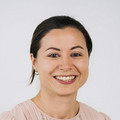
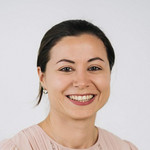
Professor Elif Bilge Kavun
Professor Elif Bilge Kavun holds the assistant professorship in Secure Intelligent Systems at the Faculty of Computer Science and Mathematics, University of Passau since October 2020. Previously, she was a Lecturer in Cybersecurity at The University of Sheffield (UK) and Digital Design Engineer for Crypto Cores at the Digital Security Solutions division, Infineon (Munich). She completed a PhD in Embedded Security in 2015 at the Faculty of Electrical Engineering and Information Technology, Ruhr University Bochum. Her research interests cover security of novel intelligent systems as well as traditional computing and embedded systems. She is also interested in secure hardware systems, design and implementation of cryptographic primitives, lightweight cryptography, and physical attacks & countermeasures.
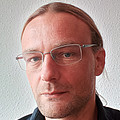
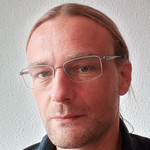
Professor Moritz Müller
Since October 2022 Professsor Moritz Müller holds the newly created chair of mathematical logic at the faculty of computer science and mathematics of the university of Passau. He works at the interface of mathematical logic and complexity theory, in particular proof complexity. Typical questions of proof complexity concern the limits and reach of proofs that use only concepts and constructions of limited algorithmic complexity. Proof complexity can be considered as an approach to the central problem of theoretical computer science, namely the P versus NP problem, by means of mathematical logic. This problem concerns the question which problems admit algorithmically efficient solutions and which do not. He appreciates the fact that the HTA not only fosters application oriented research but also invests in theoretical foundations.
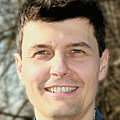
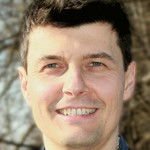
Professor Daniel Rudolf
Driven by the question of how much information is contained in given data collections and how this can be extracted, Professor Daniel Rudolf's team works in the field of computational statistics. At the interface between computer science and mathematics, this specialist area covers the development and investigation of algorithms for analysing data. The high-tech agenda thus enables the research of theoretical considerations on Bayesian inference, the quantification of uncertainties and information-based complexity.
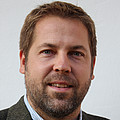

Professor Joscha Prochno
Professor Joscha Prochno deals with high-dimensional problems at the interfaces of analysis, geometry and probability theory as part of basic research. The applications of his research can be found in areas such as compressed sensing, theoretical computer science and numerics. In 2021, he was awarded the highest Austrian mathematics prize for his scientific achievements.
Many modern problems and questions (for example in the field of artificial intelligence) are of a high-dimensional nature, as they depend on a large number of parameters, and therefore require a fundamental understanding of such systems; this is the basis of Prof Prochno's research. The high-tech agenda, and in particular the equipment of the HTA chairs, creates the ideal scientific framework to enable world-class research.

